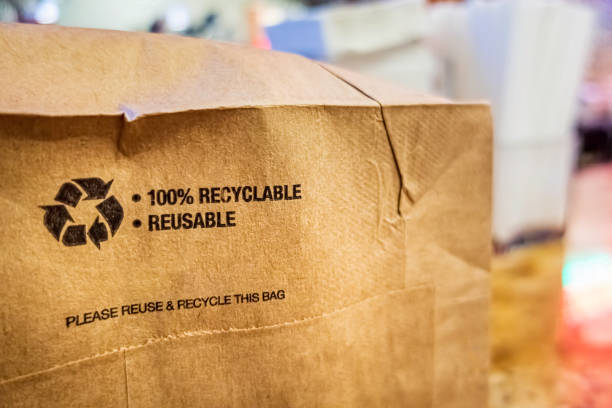- in ThinkBalm Reports by Israel Akpan
- |
- 4 comments
Profiting with Purpose: How Affiliates Can Succeed in Green Marketing.

In the dynamic landscape of digital marketing, sustainability has transformed from a niche concern to a powerful force shaping consumer preferences and industry practices. As consumers become more conscious of the environmental and social impact of their purchases, there is a growing demand for sustainable products and eco-friendly brands. Consequently, businesses are recognizing that sustainability is not just a moral imperative, but also a strategic opportunity to align with their target audience’s values. Embracing sustainability allows companies to tap into this burgeoning market and differentiate themselves from competitors. Businesses can attract and retain environmentally conscious customers by considering the environmental and social aspects of their operations and offering sustainable products. This shift towards sustainability in marketing highlights the evolving nature of consumer expectations and emphasizes the need for businesses to adapt and incorporate sustainable practices into their strategies
In the digital marketing realm, sustainability has emerged as a driving force, leading to the rise of sustainable brands and green affiliate marketing. This innovative approach brings together the principles of affiliate marketing with a strong commitment to environmental responsibility. It allows affiliates to promote products and services that generate revenue and contribute to positive social and environmental outcomes. In this article, we will delve into sustainable brands, the principles of green affiliate marketing, and how affiliates can profit with purpose by aligning themselves with eco-conscious brands. By choosing to partner with these sustainable brands, affiliates can leverage their platform to not only earn income but also make a meaningful impact on the environment and society. Green affiliate marketing presents an exciting opportunity for individuals to combine their passion for sustainability with their entrepreneurial spirit, resulting in a win-win situation for both affiliates and the planet.

Understanding Sustainable Brands.
Sustainable brands are those that prioritize environmental stewardship, social responsibility, and ethical practices throughout their operations. They transcend mere lip service, embedding sustainability into every facet of their business, from sourcing raw materials to manufacturing processes, packaging, and distribution. By prioritizing transparency, traceability, and accountability, these brands empower consumers to make informed purchasing decisions.
The appeal of sustainable brands lies in their capacity to provide products and services that fulfill present needs without compromising the ability of future generations to meet their own. Whether it’s organic skincare products that prioritize natural ingredients and cruelty-free testing, ethically sourced fashion that supports fair labor practices, eco-friendly home goods crafted from recycled materials, or renewable energy solutions driving the transition to cleaner power sources, sustainable brands offer consumers a pathway to align their values with their consumption habits. In a world increasingly conscious of environmental and social impacts, sustainable brands serve as beacons of responsibility and innovation, inspiring individuals to make choices that benefit both themselves and the planet.
Amidst the growing sustainability consciousness, green affiliate marketing has emerged as a potent tool for championing eco-conscious brands and fostering positive societal change. Green affiliates, whether individuals or organizations, collaborate with environmentally responsible brands to promote their offerings through affiliate marketing channels. Unlike traditional affiliate marketing, which centers solely on driving sales, green affiliate marketing places equal emphasis on environmental and social impact alongside financial returns.
The Rise of Green Affiliate Marketing
Green affiliates harness various platforms like blogs, social media, YouTube, and email lists to educate and inspire their audience about the significance of sustainability and the advantages of supporting eco-friendly brands. Through carefully curated content, they spotlight the distinctive features of sustainable products, including their utilization of renewable materials, adherence to fair labor practices, minimal carbon footprint, and contributions to environmental conservation endeavors.
By leveraging their influence and digital presence, green affiliates not only drive sales but also catalyze meaningful conversations around sustainability and ethical consumption. Their efforts extend beyond mere transactions, aiming to foster a deeper connection between consumers and brands rooted in shared values of environmental responsibility. As consumer awareness continues to evolve, green affiliate marketing stands poised to play a pivotal role in shaping a more sustainable and socially conscious marketplace.

Profiting with Purpose: How Affiliates Can Succeed in Green Marketing
Affiliates aiming to profit with purpose in green marketing can employ strategies to maximize their impact and revenue potential. These include authentic content creation, educational outreach about sustainability, strategic product recommendations, fostering engagement, collaborating with like-minded brands, and measuring and communicating their environmental and social impact.
1, Authenticity and Transparency: Authenticity is paramount in green marketing. Affiliates must sincerely endorse the products they promote and maintain transparency about their affiliations with sustainable brands. Genuine belief in the products fosters trust with consumers, while transparency builds credibility and reinforces the commitment to environmental and social responsibility.
2, Educational Contents: Craft content that enlightens your audience on sustainability matters, emphasizing the significance of endorsing eco-conscious brands and the favorable outcomes of their buying choices. Educating consumers empowers them to make informed decisions aligned with their values, fostering a culture of sustainability and encouraging support for brands committed to environmental and social welfare.

3, Product Reviews and Recommendations: Deliver candid and thorough product evaluations, accentuating the attributes, advantages, and sustainability credentials of the items you endorse. By offering transparent insights, consumers can make informed choices aligned with their values. Highlighting sustainability aspects underscores the commitment to ethical consumption, fostering trust and loyalty among environmentally conscious audiences.
4, Engage Your Audience: Encourage meaningful interaction with your audience by actively seeking feedback, addressing inquiries, and sparking discussions on sustainability themes. Engaging in dialogue cultivates a sense of community and demonstrates a genuine commitment to addressing environmental concerns. By fostering open communication, affiliates can build trust and loyalty while furthering awareness and understanding of sustainability issues among their audience.

5, Collaborate with Like-Minded Brands: Forge alliances with sustainable brands that mirror your principles and resonate with your audience. Collaborate on content creation, promotions, and events to extend your reach and enhance your influence. By aligning with like-minded partners, affiliates can amplify their impact, reinforcing their dedication to promoting sustainability and fostering positive change in the marketplace.
6, Measure and Communicate Impact: Monitor the environmental and social effects of your endeavors, including trees planted, carbon emissions offset, or donations to charitable causes. Communicate these metrics transparently to your audience, demonstrating accountability and illustrating the tangible positive outcomes of their support. By quantifying impact, affiliates can reinforce their commitment to sustainability and inspire continued engagement from their audience.
Conclusion: In conclusion, sustainable brands and green affiliate marketing epitomize the harmonization of commerce and conscience, offering affiliates an opportunity to profit with purpose while driving positive social and environmental change. Through partnerships with eco-conscious brands, transparent marketing practices, and a focus on education, affiliates leverage their platforms to catalyze meaningful transformation and achieve both financial success and societal impact. As consumer demand for sustainable products continues to rise, green affiliate marketing emerges as a powerful force shaping the future of ethical commerce.
